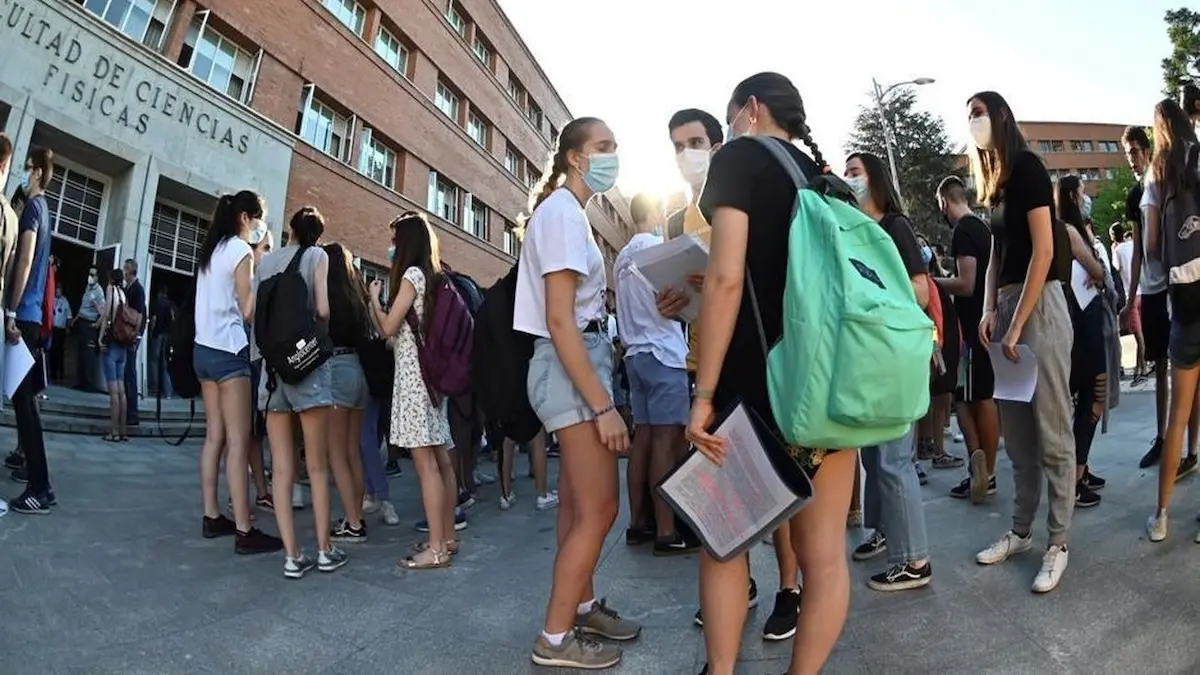More than a test

She couldn't help but look. So young, so excited, so nervous. A today that could be yesterday, or forever. She sees them and sees herself in the same circumstances. The end of one stage, the beginning of something important that will mark another even more important one. She closes her eyes and goes back decades. Too many, she thinks. A trip marked the end of exams that didn't go as she would have liked. Not too badly, though. Would she make the same choice again? She doesn't answer; perhaps she should think about a few things before giving an answer. The sound signaling the next appointment brings her back to reality. It's not her turn yet; there are at least two or three other patients ahead of her, and she arrived early.
It's not just a picture. The photo says so much more. It's on the front page of the newspaper. Someone left it on a chair in the waiting room. They forgot it or simply didn't want to take it with them after reading it. He decides to pick it up and look for the full article inside. There, the perspective is broader, more boys and girls in a large room, sitting at long tables with some distance between them to prevent them from copying each other. Each one tries to hide their fears and circumstances, their certainties and insecurities, their hopes for a future that will depend, in large part, on the grades they get after three days of tests.
She could read the information, a headline that doesn't always guarantee to inform you these days, but she's not interested; she prefers what the young people themselves are saying. It's not just an image, it's an explosion of feelings that she mixes with her imagination. She has time to analyze them until the number that a machine has assigned her appears when she arrives at the hospital. She looks calmly. A pen in her mouth as she rereads the question or thinks about the answer; her gaze fixed on infinity as she tries to visualize where in her notes the exam topic is; her fingers covering her mouth so no one notices her panting; sheets of paper between her hands as she rereads what she has written while deciding which option she knows best; a triumphant smile that shows she is guaranteed a good grade; eyes darting to classmates in search of another gesture that will restore their peace of mind; hands clasped together to try to dry the sweat caused by uncertainty... And silence, a lot of silence hidden in that photograph.
A new patient is called and the sound breaks her concentration. She looks for the piece of paper she picked up to check if it's hers: ZK7. No, it's not her turn yet. An elderly man gets up with difficulty and walks toward the door indicated on the screen. Now she can read the headline: “The future at stake.” Around 300,000 students have taken what is now called the PAU, or University Entrance Exams, in Spain. Back then, it was called the Selectividad. That was too many years ago. She was lucky because she was able to choose the degree she wanted. The problem is not passing, as the pass rate is usually very high, but getting the grades to study what you want.
Now it's her turn. She leaves the newspaper on the chair where she found it and, as she walks toward her doctor, she thinks that it's not just a photo, it's the moment when thousands of young people are gambling with their future.

